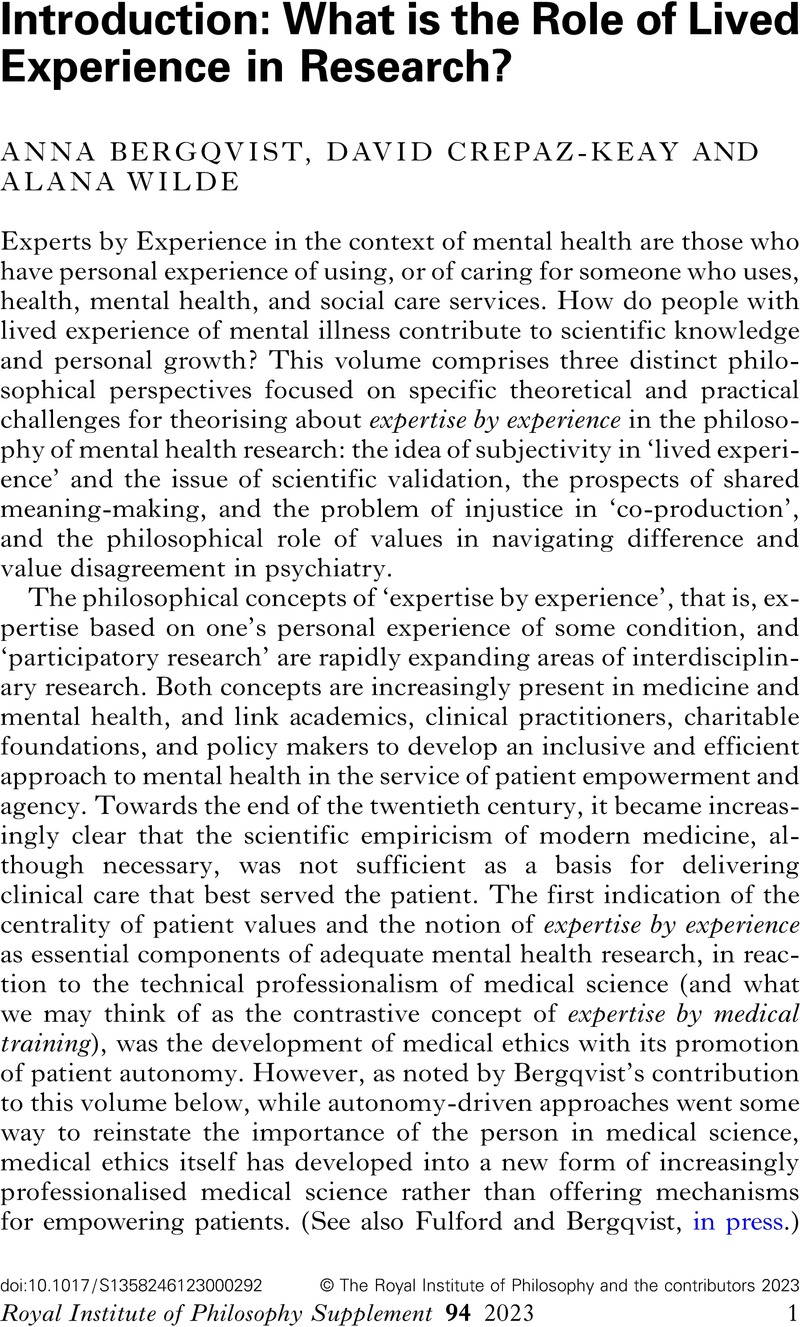Crossref Citations
This article has been cited by the following publications. This list is generated based on data provided by Crossref.
Van Ngoc, Pauline
Ceuterick, Melissa
Belche, Jean-Luc
and
Scholtes, Beatrice
2024.
‘I haven’t discussed anything with anyone’: lived experience of long-term users of benzodiazepine receptor agonists regarding their treatment for substance use disorder.
International Journal of Qualitative Studies on Health and Well-being,
Vol. 19,
Issue. 1,
Raab, Dan
Perry, Yael
Lin, Ashleigh
and
Ohan, Jeneva L.
2025.
The parent empowerment scale: development and psychometric properties.
International Journal of Transgender Health,
p.
1.



